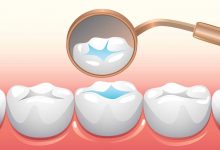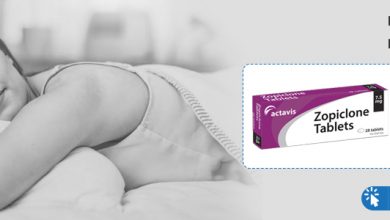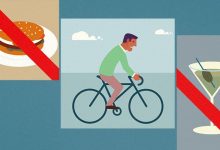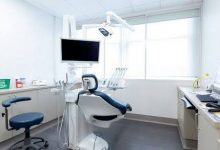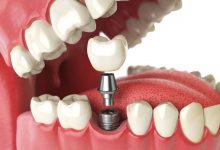All You Need To Know About Hormonal Hair Loss

Index Of The Blog
Hormonal Hair Loss
The hormones residing in your body do a lot of things that your body is thankful for, and they operate in the healthiest manner when they are in a delicate balance. The androgens, as male hormones are called, do not really need to be raised to trigger a problem. On the other hand, their counterpart female hormones, when lowered, provide a certain level of edge to these androgens, such as DHT (about which we will elaborate on further in this article). Hormonal Hair Loss.
In cases where such an imbalance does occur, it can lead to various problems, and one of the serious issues that can arise is hair loss. What is especially frustrating though is that you do not know how or why it came about at all. While sometimes it is a natural phenomenon, it can be a result of our very own lifestyles at other times.
If you too are suddenly discerning alarming levels of hair loss, then read on to find what exactly could be the culprit and what you can do about it.
So, how is it brought about at all?
Hormonal activities are the most common cause of hair loss for both women as well as men. In both of them, the specific hormone responsible for hair loss is the same: dihydrotestosterone (known as “DHT”), a hormone that your body produces as a byproduct of testosterone.
Both men and women need testosterone. In men, the body has a large amount of testosterone and a fairly small amount of estrogenic hormones. In women, this ratio is reversed, with a small amount of testosterone and larger quantities of estrogen and progesterone hormones.
Your body uses testosterone as a precursor for several other hormones. One of these hormones is DHT. DHT affects your hairline by miniaturizing hair follicles, causing your tresses to stop growing as they normally would, and eventually fall out. This hair loss is called androgenic alopecia, or female-pattern hair loss (FPHL).
In women, hormonal hair loss produces different results from men. Instead of the horseshoe-like hair pattern and receding hairline seen in men, women with hormonal hair loss usually see a diffuse thinning pattern across the entire scalp. In simple terms, you probably won’t get a receding hairline if you’re prone to female-pattern hair loss, but your hair might become noticeably thinner.
Because menopause affects your production of several hormones, it can also often trigger hormonal hair loss. During menopause, your body’s production of estrogens and progestins tends to decline. Alongside this decline in female hormone production, your sensitivity to male hormones such as DHT can increase.
If you happen to be genetically sensitive with regard to DHT, this has very good chances of affecting your hairline and hair thickness. Hair loss brought about by menopause usually takes place between the ages of 50 to 60, and women prone to hair loss start observing a steady decline in their hair density. It can also take place in the 30s and 40s, depending on the age at which you enter menopause.
Polycystic ovary syndrome (commonly referred to as PCOS), which is a very common endocrine abnormality in women, is known to be driven by chronically elevated insulin (hyperinsulinemia), which also leads to hair loss. And it is not just in women that insulin is important: men with this condition seem to suffer from hair loss as well.
What should we do about it?
Fret not, because while hormonal hair loss is kicked about without any warning, there is still a lot that you can do about it and treat your hair loss.
1. Let go of unnecessary stress
Stress can occur for a variety of reasons. If your professional life involves long hours, difficult decisions and high-pressure working environments, changing the way you work (or switching from your current job to a new career) can often produce huge improvements. You can start off by incorporating some changes to your lifestyle so that your overall stress levels are reduced.
2. Add fiber-rich foods to your daily diet
You should also throw in adequate amounts of fiber-rich foods, such as fruits, vegetables, and whole grain-based meals.
Also Read: Types Of Hair Extensions
3. Cut down on sugar
Cutting down the amount of sugar in your diet to less than 50 grams total per day and keeping your sugar level in check can prove to be a very effective treatment for hair loss brought about by hormonal changes.
4. Decrease your dependence on plastic
Strange as it may sound, reducing your dependence on plastic products and the usage of parabens, phthalates, and other endocrine-disrupter-containing products (which are very frequently present in cosmetics, personal care products, and some medications) will also take you a long way in keeping the hair fall in check.
Also Read: Best Hair Regrowth Treatment
Including certain habits from your side is all very well; however, if your hair has started looking and feeling way thinner than normal, the best thing to probably do is to talk to your doctor about it. Your doctor will be able to look at your hair and provide a diagnosis based on your symptoms and health history.
5. Supplements
- Fish oil
Fish oil is a rich source of omega 3 fatty acids which help in decreasing the levels of the male hormone. It also helps in reducing the PCOS symptoms like unwanted hair growth on the face, legs, back, chest.
- Biotin
Biotin, as we all know, helps in the growth of hair while helping maintain a healthy scalp.
- Saw Palmetto
Saw palmetto is an herb that helps in pressing the male hormones in the female body thus helping control hormone infused hair loss.
6. Exercise
Increased weight causes insulin resistance in the body. Insulin resistance, in turn, results in the production of excessive male hormones in women. Maintaining a healthy weight is necessary to deal with PCOS and prevent its symptoms from wreaking havoc any further.


